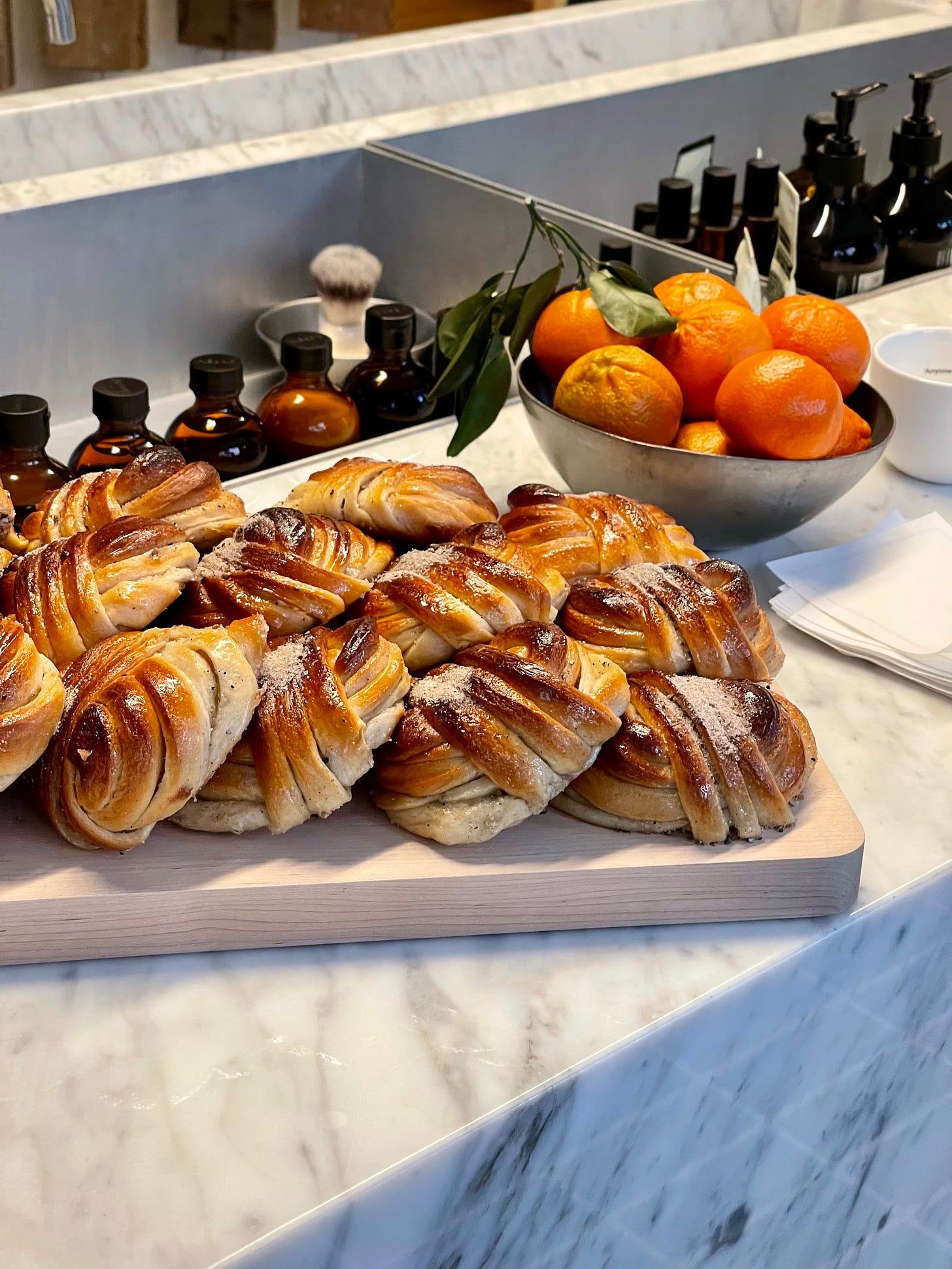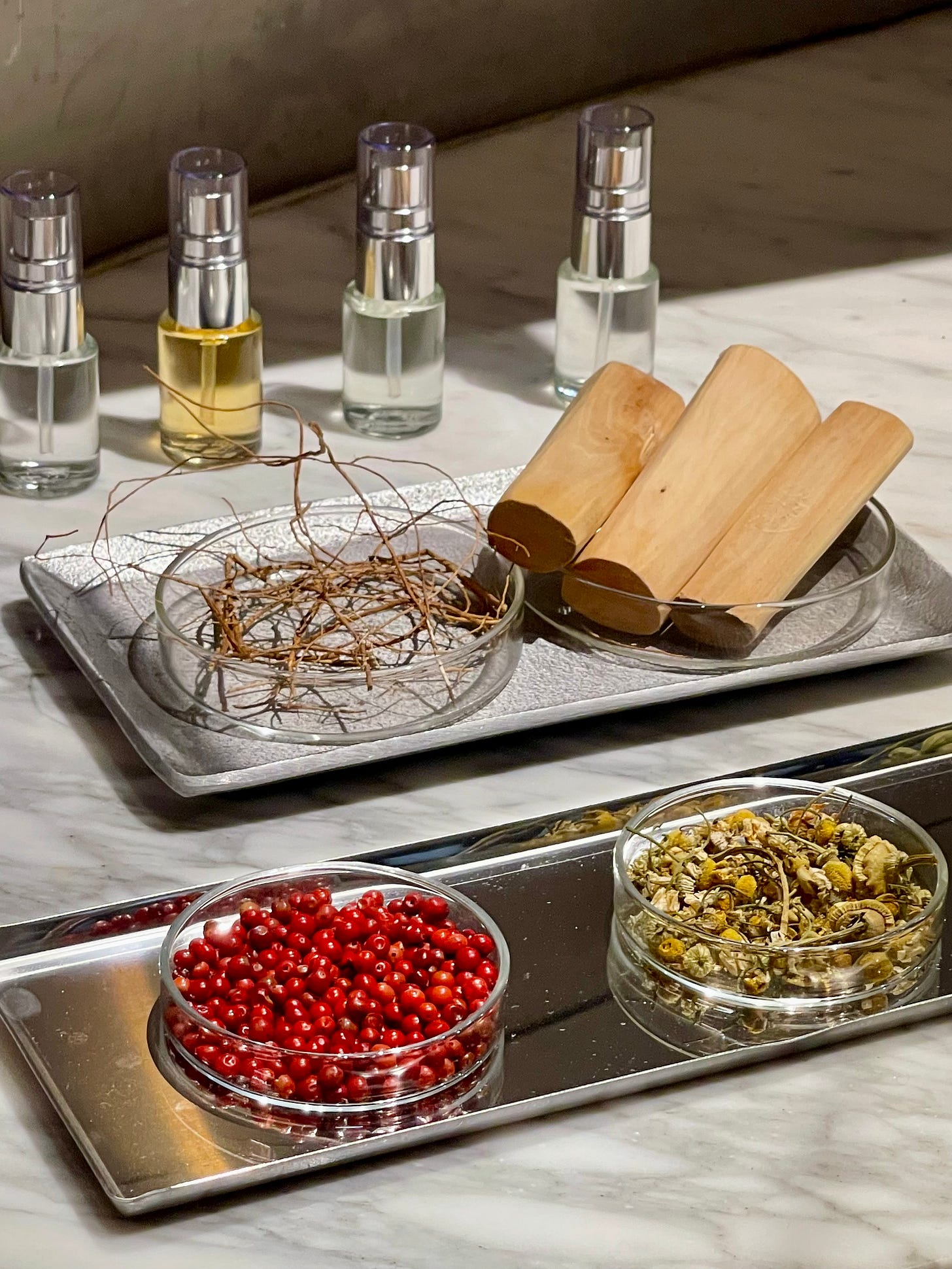Happy aquarius season my sweet friends - I wanted to put out a recap of our last few episodes.
Why? Because sometimes reading is more preferable to listening (and honestly I feel like the message gets across better).
So enjoy these bite sized lessons from our January episodes, and if you want to listen to the full discourse behind each - subscribe to the pod! Cin cin!
maybe your passions/ hobby doesn’t need to be a business
Ever had someone tell you, "You're so good at this, you should make it a business"? Yeah, I’ve heard it a million times—whether it’s fitness, cooking, or something else. But here’s the thing: not every passion needs to be monetized.
I used to think, "Maybe I should be a personal trainer! Maybe I should be a chef!" But every time I considered it, I realized that the moment I turned those into jobs, they’d stop being my thing. The second you monetize a passion, it comes with expectations, deadlines, and the pressure to perform. That joyful escape? It’s now work.
Before turning a passion into a business, ask yourself:
Would you still love it if you had to do it for someone else?
Are you ready for the pressure of making it profitable?
Can it scale in a way that fits your ideal lifestyle?
For me, working out is my time. Cooking is my joy. They don’t need to pay my bills. And maybe your favorite thing shouldn’t either. Keep your hobbies sacred.
how I got 140+ press features without paying for PR
On the flip side, when you do decide to turn something into a business, visibility is key. One of the most common questions I get is, "How did you get so much press without a PR budget?" My beauty brand has been featured in Vogue, NYT, and Forbes—all without spending a dime on PR. Here’s how I did it:
Find the right writers. I researched articles in my industry and noted who wrote them. These are the people already interested in my niche.
Engage genuinely. I followed them, commented on their work, and made real connections before ever pitching anything.
Make myself newsworthy. Instead of just pushing a product, I thought about why it mattered. What story did it tell? How did it fit into larger industry trends?
The key takeaway? Press isn’t just about exposure—it’s about credibility. It tells people, "This thing is real. Pay attention." And while press alone won’t make a business successful, it opens doors that would otherwise stay shut.
2025 What’s In/Out
Speaking of digital visibility, let’s talk about the TikTok almost-ban and why it was a wake-up call for creators everywhere. For a moment, we all panicked. I spent hours scrambling to back up content, re-upload to Instagram, and figure out what I’d do if TikTok disappeared.
Here’s the lesson: you can’t rely on just one platform.
Diversify your content. If you’re only on TikTok, you’re one government decision away from losing your audience. Build on Instagram, Substack, and, most importantly, your email list.
Repost old content. Your best-performing posts can work again. People won’t remember that you posted it six months ago.
Engage beyond the algorithm. The best creators build real relationships with their audience and industry peers. That’s what lasts when platforms shift.
TikTok survived this time. But I’m already thinking ahead. What if it didn’t? I want to make sure I’m never in a position where an algorithm determines my success. And if you’re building a brand or business, you should be thinking about that too.
So, to recap: Keep your hobbies sacred, be strategic about press, and don’t put all your eggs in one algorithmic basket. I dive deep into all of this in the latest podcast episodes. If you haven’t tuned in yet, listen here: It’s Called Taste







Excellent synopsis! Thanks!